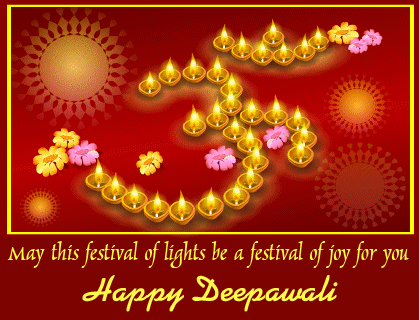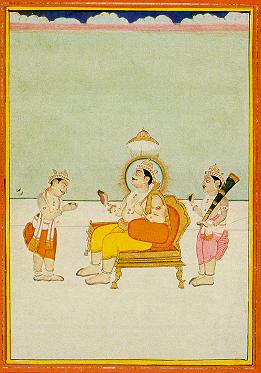Khodiyar Maa
Story Of Mataji
The story of Khodiyar Maa goes back to around 700A.D. It begins from a village called Roishala. Roishala was a part of Vallabhipur province near the now Bhavnagar city in Saurashtra (Gujarat, India).
Maharaj Shilbhadra was the ruler of the Vallabhipur province. Mamaniya Gadhvi lived in the small town, Roishala in his kingdom. He used to be Maharaj Shilbhadra’s best companion and a close confidant. Honest by heart, the humble and eloquent Shiv bhakt, Mamaniya Gadhvi was appointed as a Rajgadhvi by his friend. The king would talk to him for hours at his palace and consult him for important governance issues.
This alliance between Maharaj Shilbhadra and Mamaniya was envied by many ministers in his council. They disliked his presence at the palace and Mahraj’s personal chamber. Often found helpless, they could dare not reveal their hatred to the king. They did it to the queen (Maharaj Shilbhadra’s wife). One of the king’s men pointed out to the queen that Mamaniya and his wife were ‘baanj’ as they didn't have a child since years after being married. This as explained by him made his presence inauspicious for the king, the kingdom and queen’s prospects of having a child.
The brainwashed queen had to but order the king’s men to refrain Mamaniya Gadhvi’s entry to the palace. Next day the modest soul was stopped at the doors of the court. He was told by the doormen that the king didn’t want to see his inauspicious face. Shocked Mamaniya sought for a reason for the changed attitude of the king who also has been his best friend. The doorman told him that the king finds it ominous to see a man without kids to be present in the court or king’s palace.
Lightning struck at first, Mamaniya’s heart was in fragments. He leaves the palace without much of debate trying to swallow the humiliation caused after years of friendship and selfless service.
How to become janabai to khodiyar Mataji:-
Once the seven sisters, one brother killed merakhiya poisonous bite sape. The poison was not inferior in any way. The seven sisters and parents have been adhdhara lives. This time someone has said that if patal lok in nag araja bringing water from the sun ugya amrtakumbha merakhiya given before the poison can bring.
The sisters listening youngest brother lives there janabai reopened to prevent the tube amrtakumbha. When amrtakumbha when they were out of the way to take his legs hurt and he was injured, so I can be reached amrtakumbha janabai quickly magarani for the ride. Since then, the crocodile became his vehicle. When they came out of the water were running khodatam ankle injury.
They kaheva after seeing all the excitement that has been khodi occurred. Just then her recognition as janabai knows khodiyar. Khodiyar maa is strength of the many paraca. This is due to their devotees in khodiyar bandhav many temples. Galdhara is the main Dham. It is said that Ra 'navaghan khodiyar Mata mother was very faith.
The fruit of their faith and believe in the State 'navaghana was born, so that the Rajput chudasama puja began as a khodiyar is kuladevi. When Ra 'navaghana went to war to protect his sister when his horse heights below 200 m near the temple in the foothills of him, but ra' navaghan No one was injured.
The ra 'navaghanano is Miracle Rescue in the khodiyar only. In this temple and in the State 'navaghana was also aneri faith, so it is often with their rasala darsan coming here. The addition of rajapara, matel and kagavada (Jetpur) are located in khodiyar Mataji Temple. This saktisthalo jagatam centers asthanam alive.
Mamniya's prayers answered.
Mamaniya goes home from the capital. The displeased look on his face could not evade his wife, Minalde’s eye. After probing for reasons, she learns about his humiliation at the king’s palace for the fact that they did not have kids. She could do little to please her husband who was still reeling under the shock.
Mamaniya decides to go to Shiv temple and make a demand to Lord Shiv for kids. He decides to perform Kamal pooja (a type of Hathyog to please God by hook or by crook). Finally Mamaniya decides to give his life to the unmoved Lord Shiv.
Just when he was about to make his final sacrifice Lord Shiv appeared. Lord asked him for a wish and knowing the same he rejected it saying that it weren’t in his destiny to become a father. Later he took him to ‘Naglok’ (the snake kingdom) to see if ‘Nagdev’ (the king of snakes) could help. On hearing his case, Nagdev’s daughters (Nagputris) decide to rescue helpless Mamaniya from his emotional crisis. 7 nagputris (daughters) and 1 nagputra (son) agree to take birth at his place. They promise to arrive on Mahasudh Aatham (debated as Ashadi Beej in some versions).
Mamaniya and his wife, as informed, keep 8 cradles ready in anticipation of the great event. As promised 8 snakes crawl in to their house and occupy each cradle. In no time they take form of a baby. One amongst the 8 babies born is Janbai (Khodiyar Maa).
Mamaniya and his wife celebrate the miracle of their life by distributing sweets. The announcement of having fathered 7 daughters and 1 son reach every nook and corner of the town.
They name their daughters as Aaval, Jogal, Togal, Janbai, Holbai, Beejbai, Sosai and the son, Mehrak (Mehrakiya with love).
Some fellow villagers knew that Minalde was not pregnant and to have delivered 8 kids could not have been less than a miracle as they claim. Some suspected the overnight turnout to be a result of a black-magic trick practiced by Mamaniya and his wife. These rumours found their way to Maharaj Shilbhadra’s ears who was as rejoiced as anybody else on knowing that Mamaniya was no longer a ‘baanj.’ Hence it made him reluctant before he paid his visit to Mamaniya charan’s celebrations.
Khodiyar Maa derives her name
Mamaniya’s young kids were playing in the field when brother, Mehrak was bit by a venomous snake. His sisters rushed to him. Aaval suggests bringing of ‘Ami’ (Elixir of life) from the ‘Naglok’ underneath the sea. It had to be brought before the sunset in order to save Mehrak’s life. Janbai volunteers to bring Ami from Naglok before the sunset.
She gets ‘Ami’ from Naglok. While hurrying her way back to the surface of water she injures her foot in the hostile rocks beneath. She is rescued by a crocodile who escorts Mataji on its back to the surface of water.
Limping with discomfort Mataji happens to reach the accident site on time. Seeing her in this state, Aaval guesses she must have injured her foot. Feet injury is known as Khodi and that’s when she hears one of them saying, “Khodati aavechhe” (She is limping on her way). For this feat of her to save her brother, Aaval decides to name her Khodiyar and declares that she would be in future known and worshipped as KHODIYAR Maa.
This particular event gives us an idea of how quick and impatient Khodiyar Maa is when it comes to answering the prayers of her followers.
This event also made ‘magar’ (crocodile) her ‘vahan’ (vehicle). Crocodile is an amphibian reptile. Maa Khodiyar on a crocodile symbolizes her supremacy over both land and water.
Mataji and her siblings float on water

Mataji and her siblings float on water
King’s men grab this occasion in wake of rumours to plan king’s assassination and blame Mamaniya charan for the same. One of the plants secretly poison the sweets specially brought by Mamaniya charan to offer to the king.
A happy Shilbhadra takes his look at all the babies. When he takes little Janbai in to his arms from the cradle, Mataji extends her hands over his head to bless him. To protect the innocent king from his assassination attempt, Mataji performs another miracle from the cradle. When Shilbhadra is about to eat the poisoned sweets they disappear suddenly.
This annoys the king adding to his doubt of black magic trick being involved. He orders killing of the babies by immersing them in water in iron boxes. To his disbelief the iron boxes floated on water and everyone on the banks could still hear the babies crying in the boxes.
The imporatnce of Lapsi(prasad).
Lapsi is believed to be the most auspicious food of Khodiyar Maa. Made of wheat, it is sweet to taste. Variants of lapsi are offered to other Matajis. At Rajapara Khodiyar Mandir, Bhavnagar, tones of lapsi is made on Mahasudh Aatham to offer to Khodiyar Maa and distribute to all the bhakts as prasad. At Sanyas Aashram, Mumbai, on the day of Chaitra sudh paacham (an auspicious day when Khodiyar Maa’s idol was placed in the mandir) lapsi weighing 100s of kilograms prepared so that all the Khodiyar bhakts in Mumbai can share it for their mega-feast in the name of Khodiyar Maa.
The lapsi seems to be chosen by Goddesses as their food as it is very easy to prepare, good to taste, filling to have and the ingredients are on easy avail. In olden times the villagers made lapsi as a sweet note to dish for any household celebrations. Wheat used for daily bread, jaggery for curries and desi butter (ghee) with some oil is all you need to make it.
Six Sisters :-
1) Aaval,
2) Jogal,
3) Togal,
4) Holbai,
5) Beejbai,
6) Sosai
One Brother :-
1) Mehrak



.jpg)













.JPG)






















.jpg)







